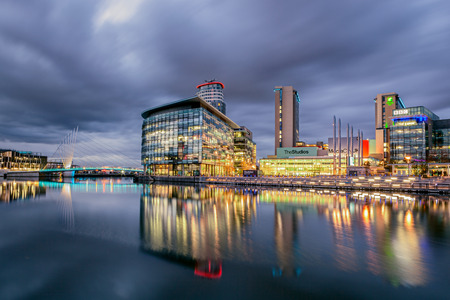Creating cities of the future

Alison Vincent, CTO, Cisco, UK and Ireland
Across the globe, today’s cities are facing dramatic social, economic and environmental transformation. The number of urban residents continues to grow by nearly 60 million every year, putting increasing strain on already heavily pressurised resources and infrastructure.
We are turning, says Alison Vincent, CTO of Cisco, UK and Ireland, to technology to help solve some of these issues and help us run more efficient cities that use fewer resources and ultimately provide residents with a better quality of life.
Proliferation of ‘smart’
The fact is, even without a conscious effort by governments or local city officials; cities are getting smarter all around us. Every connected thermostat, Wi-Fi enabled security system or connected car is making its mark, connecting to a city network and helping citizens to better manage their lives. Yet the concept of a smart city goes so much further than that.
The latest innovative technologies are helping us to make our cities smarter by collecting and analysing information about the urban landscape around us, improving how it works and helping us to overcome challenges specific to that city environment, from transport congestion to access to public services.
Different cities across the world are at different stages in adopting smart technologies, some running projects in localised districts to tackle a specific issue, such as air quality, while others are experimenting with city-wide connected platforms that aim to connect the whole city, over time, to what will essentially become its own dedicated operating system.
All about the people
Yet it’s not about technology for the sake of it. Cities are all about the people and it’s essential to bring the two together in a harmonious way. Technology has to enhance people’s lives and connecting a city and making it smart has to start with the needs of the citizens it already serves.
It requires an in-depth understanding of the challenges faced by its unique inhabitants, which will vary broadly from one place to another. Therefore, partnerships between public, private sector organisations and companies with extensive expertise in the field, are the key to establishing a well- balanced smart city that provides benefits to all.
Creating cities of the future
In order to enable the implementation of such innovative technologies and assist in accommodating the growing needs of modern communities, cities must have the right technology infrastructure in place. To say it in other words – cities must roll out the right network that can facilitate intelligent data collection and serve as the platform, or the backbone, for the smart city ecosystem.
Take the UK’s Manchester’s CityVerve project, for example, which is being delivered by a consortium of 21 organisations – including Cisco, Manchester City Council, Manchester Science Partnerships, the University of Manchester, BT and many others. It aims to bring together the brightest minds and pioneering use of Internet of Things technologies to redefine ‘smart’ in the context of a living, working city and create a blueprint for smart cities worldwide.
It is being designed to create endless possibilities for new businesses, improvements to transport, education and healthcare services. The project actively engages with citizens and has plans to empower them, though technology, to be more involved in the city.
Cisco is also enabling cities from all around the world to turn their community data into action through its Cisco Smart+Connected™ Digital Platform, a cloud service that helps cities benefit from the Internet of Things. It allows data to be securely collected from 3rd party sensors, street cameras, devices, and other connected systems and objects in real-time.
This helps city departments and agencies to make decisions to improve operational efficiencies, increase revenue, and reduce costs in areas such as street lighting, parking, traffic flow, environmental sensing, waste management, safety and security, and other city services.
One of the challenges currently facing smart city deployments is the sharing of data, be that as a result of government siloes, caution over data security or regulatory concerns. Cisco’s Smart+Connected™ Digital Platform helps city departments and agencies to benefit from the securely shared data, helping city leaders to make fully informed decisions.
Regardless of the project, city or country involved, the benefits of realising a fully-functioning smart city are markedly similar; to realise new revenues, save costs, improve efficiencies and improve the quality of life for the citizens who live there. Technology is set to connect governments, organisations, communities and individuals and empower citizens in ways we thought were the stuff of fiction just a decade ago.
The author of this blog is Alison Vincent, CTO, Cisco, UK and Ireland
Comment on this article below or via Twitter @IoTGN
